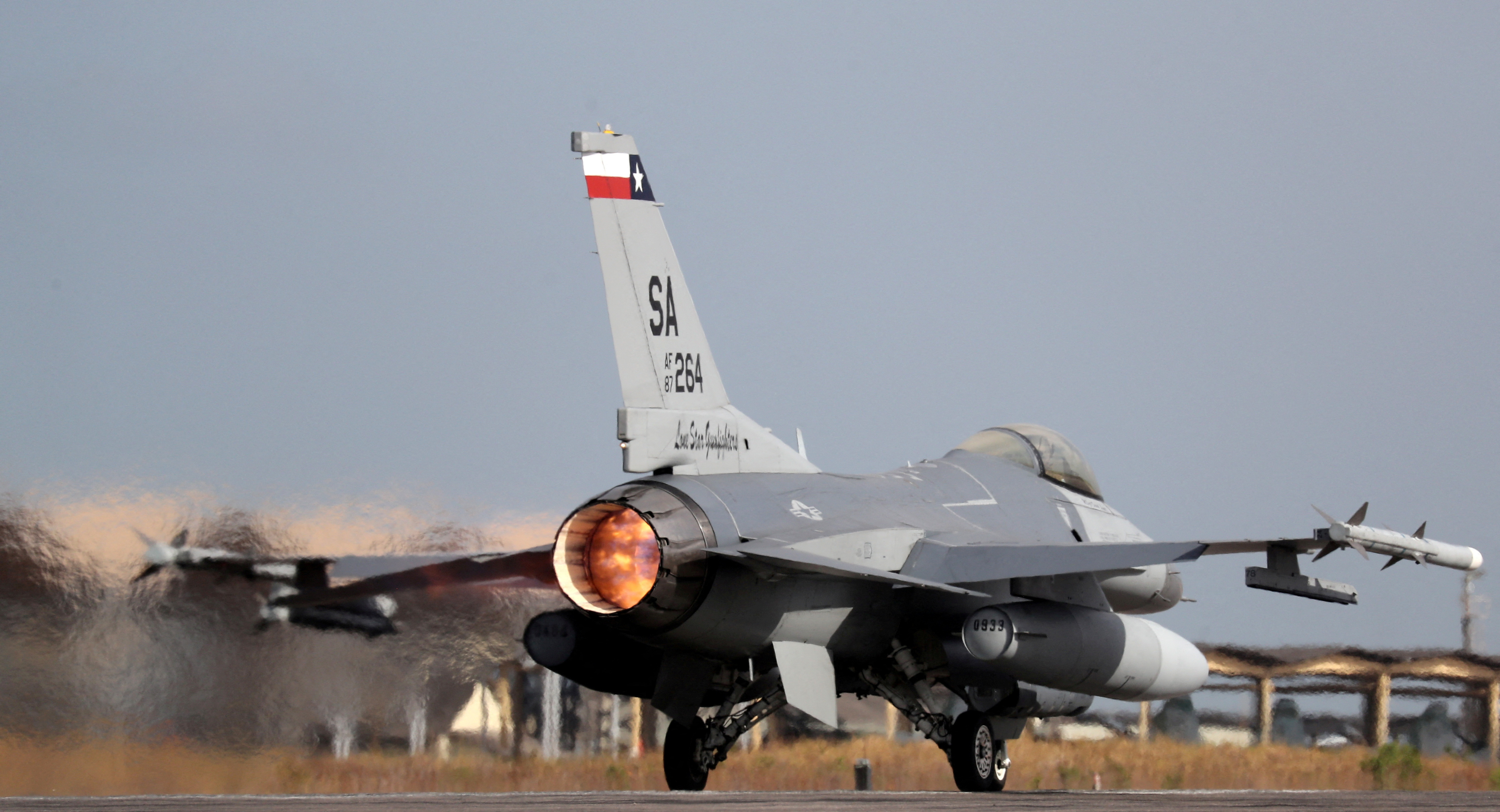Turkish Foreign Minister Mevlut Cavusoglu on Wednesday said he expected the United States to approve a $20 billion sale of F-16 fighter jets to Turkey, saying the planned acquisition is in line with the “joint strategic interests” of both Washington and Ankara.
U.S. Secretary of State Antony Blinken is hosting Cavusoglu in Washington, for the first time since the Biden administration took office almost two years ago, in a visit during which the Ukraine war, F-16 deal and Ankara’s refusal to green light NATO membership for Sweden and Finland will be front and center.
The Biden administration has expressed its support for the sale of the jets to Turkey, despite opposition from the U.S. Congress over Ankara’s problematic human rights record and Syria policy, as it seeks to keep NATO unity in the face of Russia’s invasion of Ukraine.
Speaking before a meeting with Blinken at the State Department, Cavusoglu said the F-16 deal was important not only for Turkey but for NATO and the United States and appeared confident that it would go ahead.
“So we expect the approval in line with our joint strategic interests,” he said in brief remarks.
But the approval might prove to be complicated because of Ankara’s refusal to ratify NATO membership of Sweden and Finland.
“(Turkish President Tayyip) Erdogan’s … repeated attacks on our Syrian Kurdish allies, and continued cozying up to Russia — including delaying Sweden and Finland’s NATO membership — remain serious causes for concern,” Democratic Senator Chris Van Hollen said in a statement.
“As I’ve said before, for Turkey to receive the F-16s, we need assurances that these concerns will be addressed,” he said.
The two Nordic states applied for NATO membership last year following Russia’s invasion of Ukraine but their bids need approval from all 30 NATO member states. Turkey and Hungary have yet to endorse the applications.
Turkey raised objections, accusing the countries of harboring groups it deems terrorists. It said Sweden in particular must first take a clearer stance against these groups, mainly Kurdish militants and a group it blames for a 2016 coup attempt.
Erdogan said on Monday the two countries had to deport or extradite up to 130 “terrorists” to Turkey before parliament would approve their requests to join NATO.
On Tuesday, Finland said it hoped the Turkish minister’s trip to the United States this week would help clear the way for it and Sweden to join the alliance.
“HOSTAGE”
Ties between the United States and Turkey have been strained since Turkey acquired Russian missile defense systems in 2019.
While Cavusoglu and Blinken have met numerous times in the past at NATO summits and U.N. meetings, it took the Biden administration almost two years to officially invite Cavusoglu, a delay that analysts say reflects a strained relationship.
The United States has praised Turkey for some of its actions during the Ukraine war, including mediating grain corridor talks, but also worries about Ankara’s deepening relationship with Moscow.
The countries are also at odds over Turkey’s plans for a military operation into Syria and its intent to normalize ties with Damascus. For its part, Turkey demands Washington does not support the Syrian Kurdish armed groups that it sees as terrorists.
Tensions between Turkey and fellow NATO ally Greece over the Aegean Sea have also negatively impacted the sentiment in the U.S. Congress towards Ankara.
Last week, the State Department informally notified the committees overseeing arms sales in the U.S. Senate and House of Representatives of its intention to proceed with the sale.
The move triggered comments from members of Congress who oppose the deal, the most notable coming from Democratic Senator Bob Menendez, chairman of the Senate Foreign Relations Committee.
A senior administration official said Washington was unlikely to follow through with the sale unless Menendez reverses his opposition, a senior administration official said.
On Saturday, Ibrahim Kalin, Erdogan’s chief foreign policy advisor, said Washington’s demands relating to the supply of the fighter jets were “endless.”
He added he hoped the F-16 deal would not become “hostage” to the NATO memberships of Sweden and Finland.
While Congress can block foreign arms sales it has not previously mustered the two-thirds majorities in both chambers required to overcome a presidential veto.







Click here to change your cookie preferences